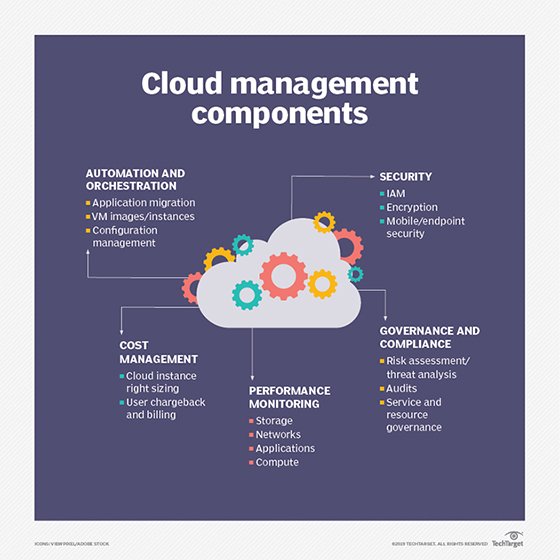
kentoh - Fotolia
Hone these top 5 data center skills in 2019
As data centers become more software-based, admins should prepare themselves by learning about the cloud, containers, DevOps and artificial intelligence.
In 2019, the data center administrator role will require much more knowledge of the cloud, virtual resources and management software.
IT administrators must prepare to oversee a different data center than they may be used to. Admins should make sure they understand the basics of supporting an environment that combines the cloud, containerization and artificial intelligence.
Implementing, operating, troubleshooting and updating hybrid IT setups brings many new issues and data center skills to the fore in regards to hardware requirements, security and data collection. So what skills should admins focus on throughout 2019?
1. Cloud selection and management
As cloud adoption grows, admins must learn how infrastructure, platform and software as a service work; the different benefits and drawbacks to public, private and hybrid cloud setups; and any hardware necessary to support the cloud.
Admins should select a cloud environment that works for their organizations long term. There are a variety of services out there from Microsoft, Amazon, IBM, Salesforce, SAP and Oracle, so admins need to form a proper evaluation process.
If admins want a robust cloud, they must make sure that the technology supports consistent image deployment, interface management, architecture standards and open application programming interfaces (APIs), such as AWS' Simple Storage Service APIs.
At a basic level, admins should know how to use cloud management software for application migration, virtual machine images, configuration, performance monitoring and security. With the reliance on cloud technologies, admins must figure out how cloud architecture fits into their data center and how to use it to the organization's benefit from a storage and application performance perspective.

2. Application management changes course
Cloud is changing how admins provision, monitor and maintain applications. Admins need data center skills to manage more modular application setups that rely on pooled resources instead of installing programs on individual servers.
Admins must familiarize themselves with the concepts behind microservices, how containerization differs from virtual machines, and how to use orchestration as a key automation tool to ensure continuous and secure application operation. They can look to Docker-based containerization, with LXC/LXD as an alternative for certain Linux distributions, especially Ubuntu.
The advent of microservices and container technologies means that admins need to learn about the latest hardware that supports this architecture. Along with brushing up on automation software, admins should learn how to build an infrastructure that has low latency, research how to properly scale resources, and figure out the best way to organize APIs and calculate storage.
Admins should also research Kubernetes for container management. Kubernetes' developers are increasing its capabilities to include simplified cluster management, a container storage interface, third-party device monitoring plugins and CoreDNS support.
3. Security becomes data-first
Equipment, application and database security are now secondary layers to information security. No matter where admins store data -- or if it is managed by a third party -- the primary concern must be protection.
Admins must evaluate their data protection framework and place information security at the forefront of their security strategy. This requires an established security baseline, defined audit scopes and objectives, and properly installed data protection software.
Combining data loss prevention software with digital rights management programs can help admins build information-first frameworks to use across their organizations.
If admins want more hands-on involvement with security, they can build out their network testing, risk analysis, software testing and security documentation skills. Being able to proactively predict, patch and protect data from outside threat actors is an essential part of a data-first framework.
4. DevOps support through software
Admins will need to increase DevOps support and collaboration to improve their data center skills; poorly implemented DevOps systems can cause mayhem in a production environment. Software-based checks and balances should catch problems so performance and runtime issues do not propagate throughout the operational environment.
These checks and balances use more agile operations, so admins should evaluate operational procedures and determine if they support agile workflows. When it comes to application support and the production environment, is the software layer consistently updated or plagued with unaddressed bugs?
Admins should also learn about infrastructure as code (IaC). IaC provides users with a higher-level, more versatile and descriptive language to provision and deploy software processes within data centers. This means that admins manage the majority of the technology stack using software, not physical hardware.
Software-based management gives admins more scalable data center resources, but it requires more upfront testing and code-based troubleshooting to ensure hardware compatibility. The more that admins familiarize themselves with software-defined data center and virtual machine management, the easier it is to support DevOps code and infrastructure.
5. Artificial intelligence increases, requires new hardware
Artificial intelligence (AI), machine learning and deep learning capabilities will become more available to administrators over the next year. Many organizations already use machine learning, with industries such as manufacturing using pattern recognition to identify items that are out of specification.
This not only requires increased storage and processing capabilities, but also calls for the right monitoring and data collection software. Admins must learn how such intelligence systems can help their businesses and identify a few basic engines that meet their desired goals -- and use one engine as a foundation. If an organization just uses AI without a defined use case, the return on investment will be very low.
If organizations want to run any AI-augmented applications, admins should make sure that the data center has the proper hardware -- such as GPUs -- and the knowledge to manage energy consumption. Running these high-performance applications can be beneficial to an organization, but GPU-based servers require more energy and power resources. Admins should install GPU hardware so it does not fry the server or spike energy bills.








